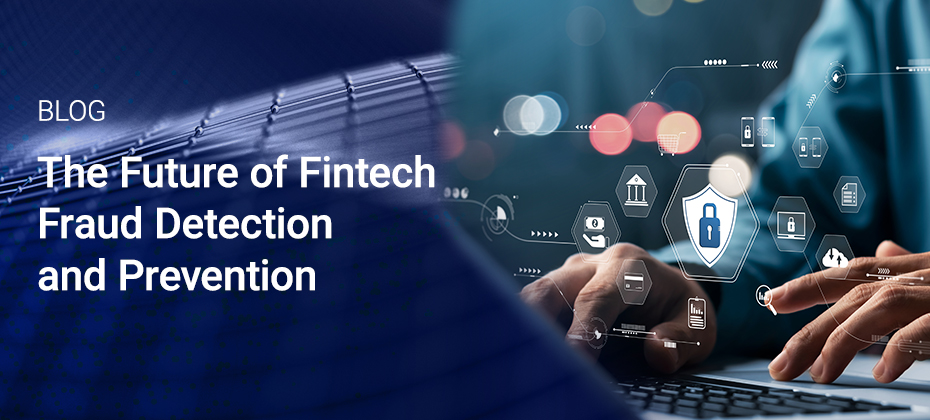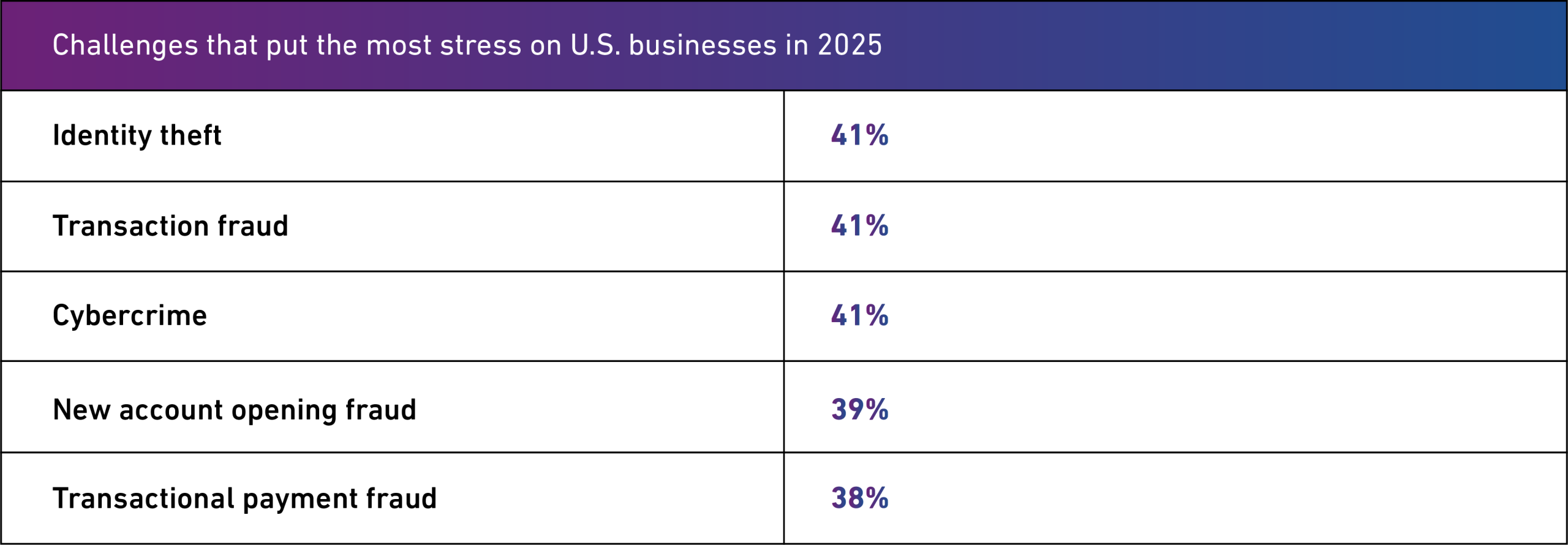
In this article…
The integration of technology with traditional financial services has unlocked unprecedented convenience and opportunities for consumers and businesses alike. However, this digital shift has opened the door for more sophisticated fraud tactics. With fraudsters continuously refining their methods, fintech companies must invest in advanced fintech fraud detection and prevention solutions.
Understanding the scope of fintech fraud
As fintech platforms expand, they also attract the attention of cybercriminals. The accessibility of digital financial services can create vulnerabilities that fraudsters exploit, executing everything from personal account takeovers to larger-scale breaches involving synthetic identities.

To counter these threats, fintech companies must deploy innovative fraud management solutions powered by artificial intelligence (AI), machine learning (ML), and advanced analytics. Unlike traditional methods that often rely on static rules and manual reviews, these solutions can process vast amounts of data, learn from historical patterns, and detect anomalies in real-time. This allows organizations to identify suspicious activities before they lead to significant losses.
The importance of fintech fraud prevention
While detecting fraud is crucial, preventing it from occurring in the first place is even more important. Fraud prevention solutions aim to create robust systems that stop fraudsters in their tracks before they can cause damage. With the rise of digital financial services, the need for proactive fraud prevention measures has never been greater. These solutions protect both consumers and businesses from financial harm, reducing the risk of financial loss and reputational damage.
Advanced fraud prevention solutions employ multilayered strategies, combining AI-driven fraud detection tools with methods such as multifactor authentication and biometric identity verification. These tools create an extra layer of security, making it difficult for fraudsters to access sensitive data or execute fraudulent transactions.
Experian’s fraud prevention solutions offer businesses a comprehensive suite of tools designed to prevent various types of fraud. From real-time transaction monitoring to sophisticated user authentication methods, these solutions provide the protection businesses need to stay ahead of evolving fraud tactics.
Synthetic identity (ID) fraud: A growing threat
One of the most concerning forms of fraud that fintech companies face is synthetic ID fraud. This type of fraud involves the creation of a fake identity using a combination of real and fabricated information. Fraudsters often steal pieces of personal data — such as Social Security numbers or addresses—and then combine them with fictional information to create a new, synthetic identity. These synthetic identities can be used to open bank accounts, apply for credit cards, or take out loans, leaving businesses and consumers vulnerable to significant financial losses.
Synthetic ID fraud is particularly difficult to detect because the synthetic identity often looks legitimate to traditional verification systems. As a result, fintech companies must deploy sophisticated fraud detection systems that can identify synthetic identities before they’re used to commit fraud. Machine learning algorithms, for instance, can analyze behavioral data, detecting discrepancies that may indicate a synthetic identity.
Experian is ranked #1 by the Center for Financial Professionals (CeFPro®) for Identity and Fraud. The ranking appeared in CeFPro’s Fintech Leaders Report, a comprehensive annual study of the fintech industry.
How fintech fraud detection and prevention are evolving
As fraudsters continue to evolve their tactics, fintech companies must remain one step ahead by investing in cutting-edge fraud detection and prevention technologies. Real-time monitoring, predictive analytics, and biometrics are just a few of the technologies shaping the future of fraud detection. By integrating these technologies into their fraud management processes, fintech companies can offer a more secure and seamless experience for their users.
With the acquisition of NeuroID, an industry leader in behavioral analytics, Experian has amplified its fraud risk suite by providing a new layer of insight into digital behavioral signals and analytics. Available through our fraud solutions on the Experian Ascend PlatformTM, clients can proactively monitor and analyze a user’s real-time digital behavior, allowing them to confidently navigate the online landscape and provide frictionless customer experiences.
Get started today
As the fraud landscape continues to evolve, fintech companies must adopt comprehensive solutions to stay ahead of emerging threats. By doing so, they can protect themselves and their customers, ensuring the continued success of digital financial services in the years to come.
To learn more, check out our fraud management and fintech solutions.


